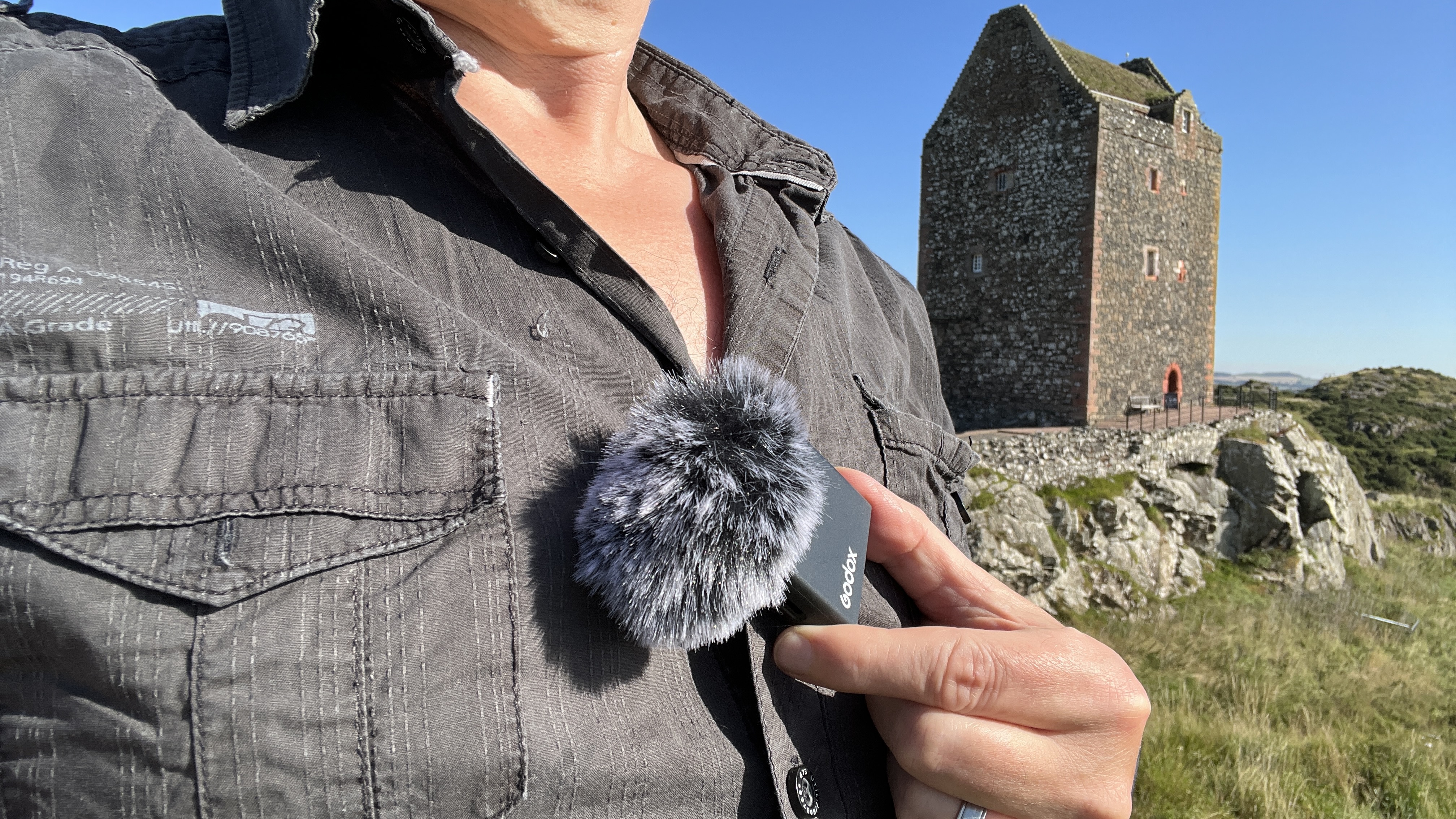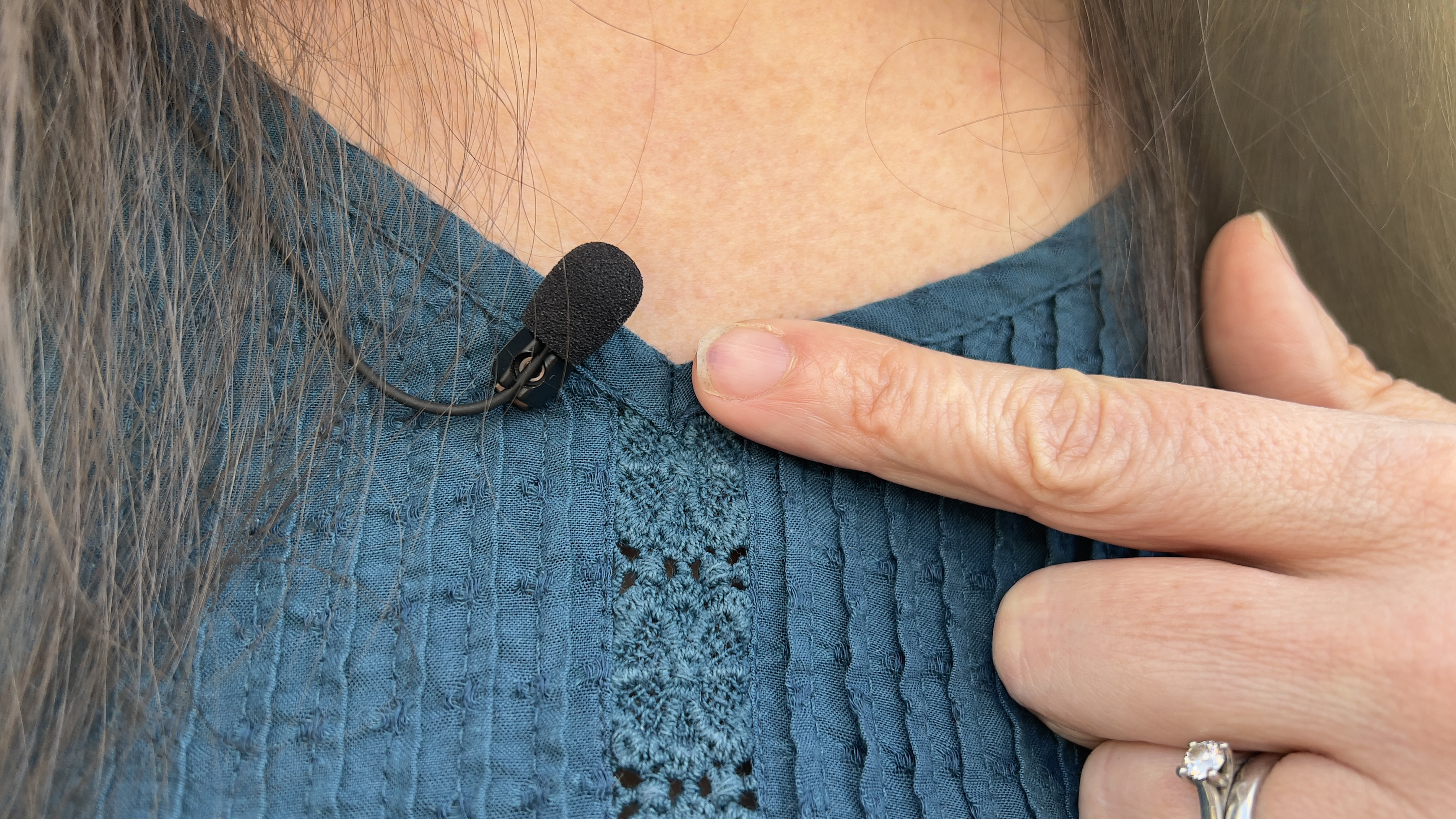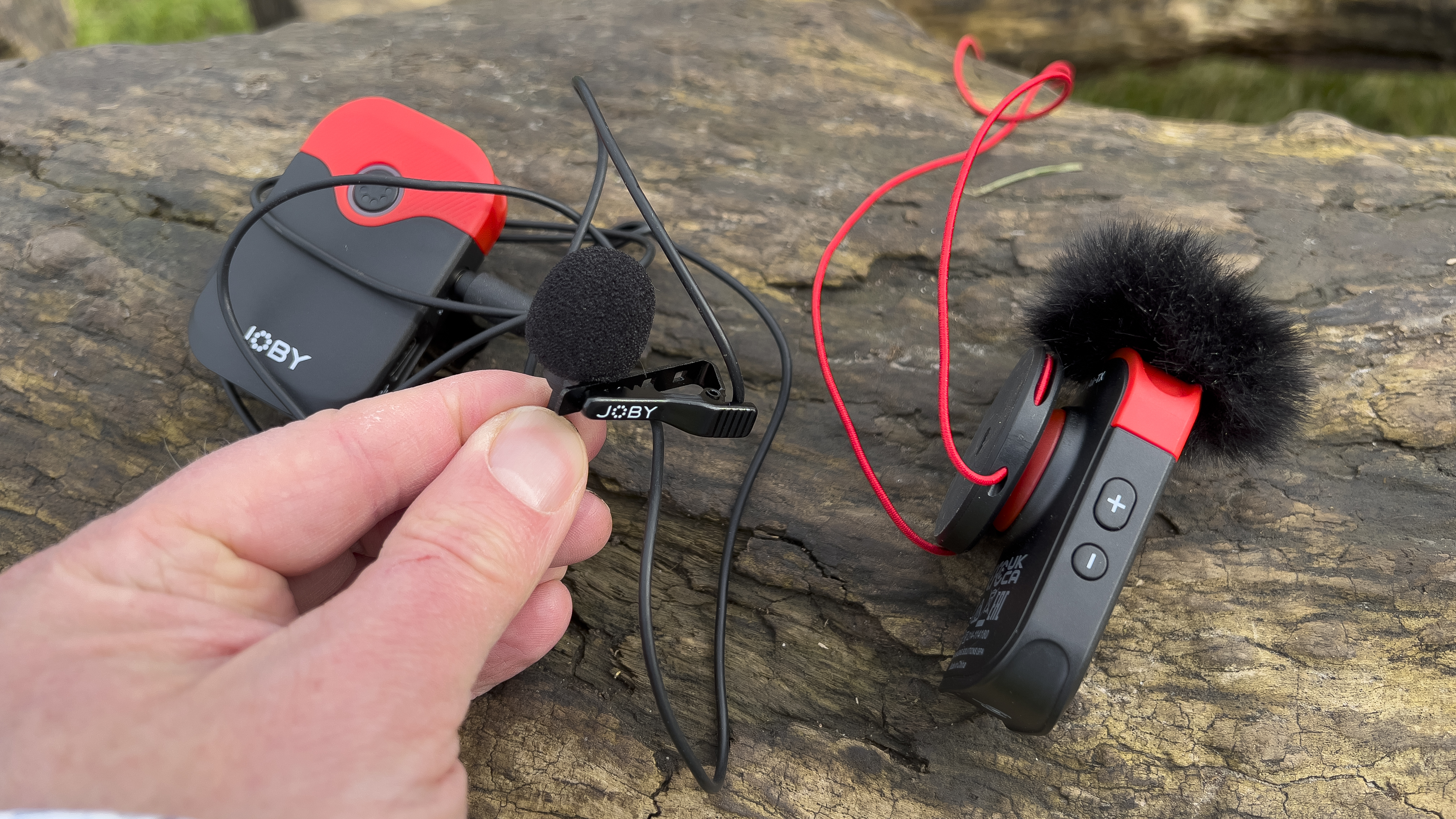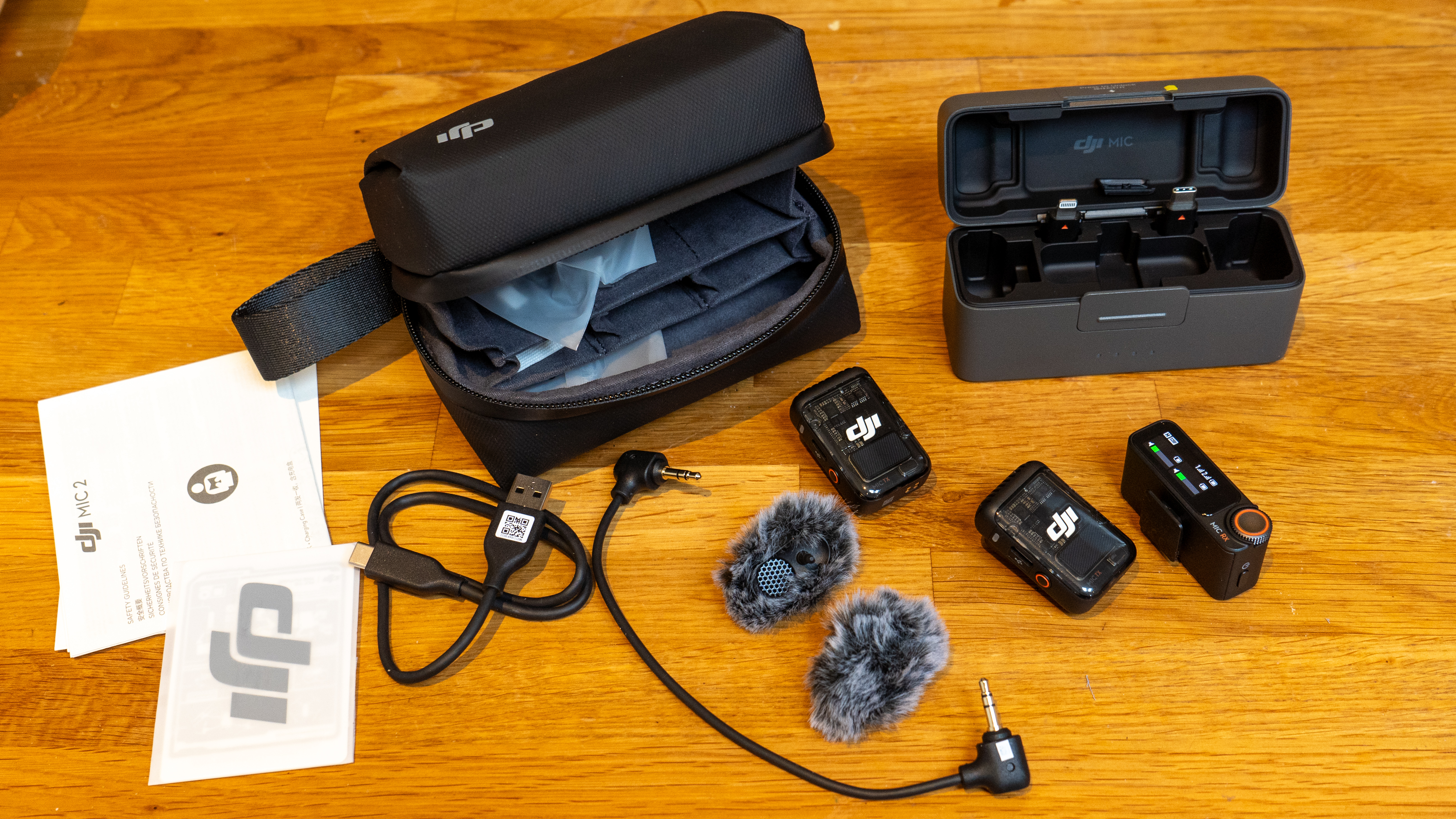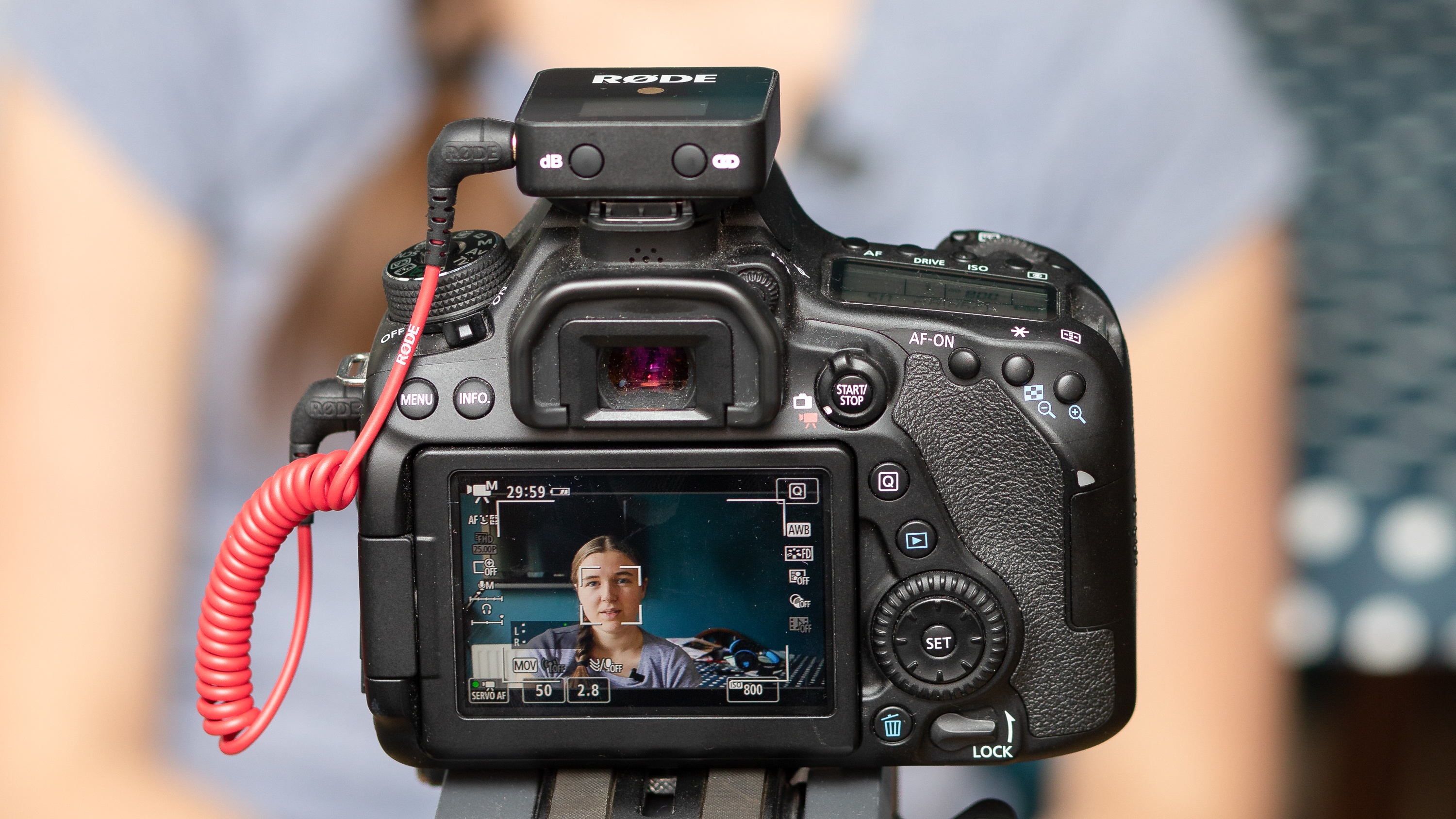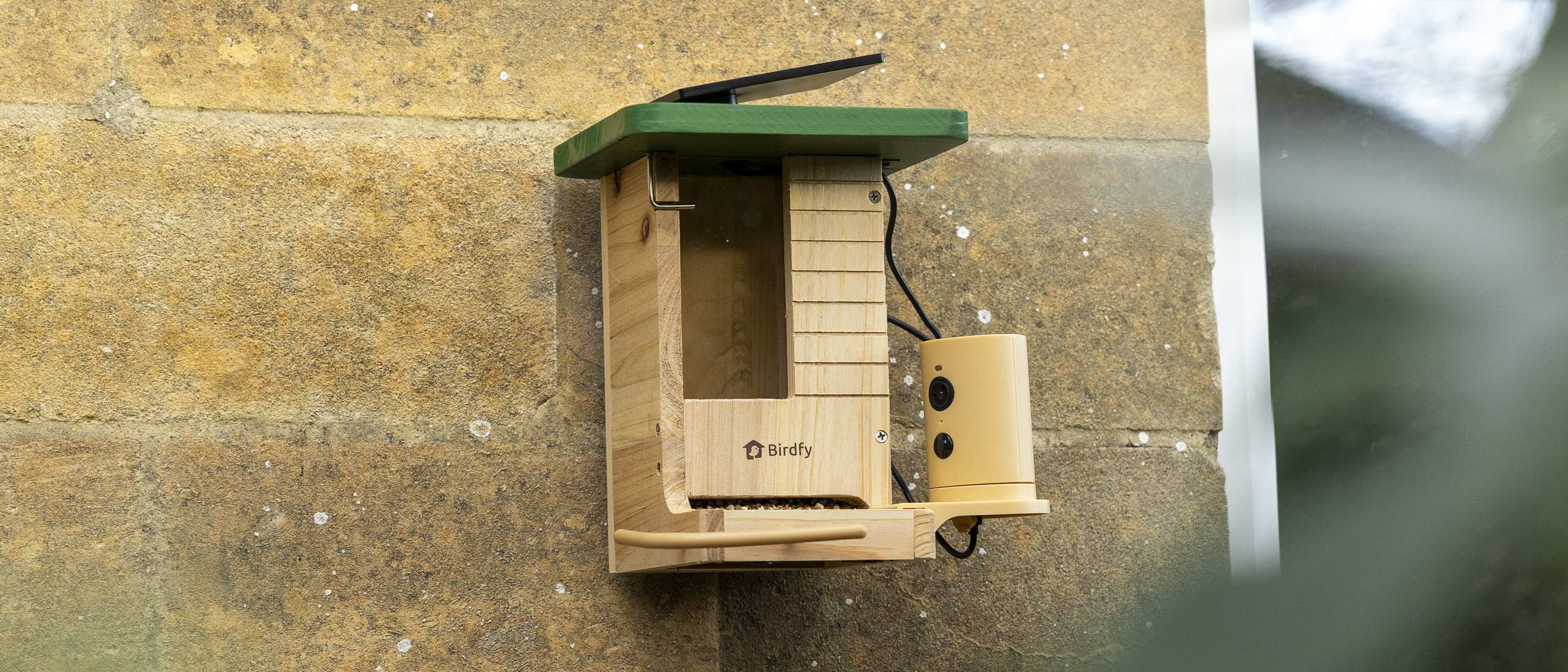Best lavalier microphone: tiny mics to clip to your clothes
Our pick of the best lavalier microphones for filmmakers and sound recorders – just clip them to a lapel and go!
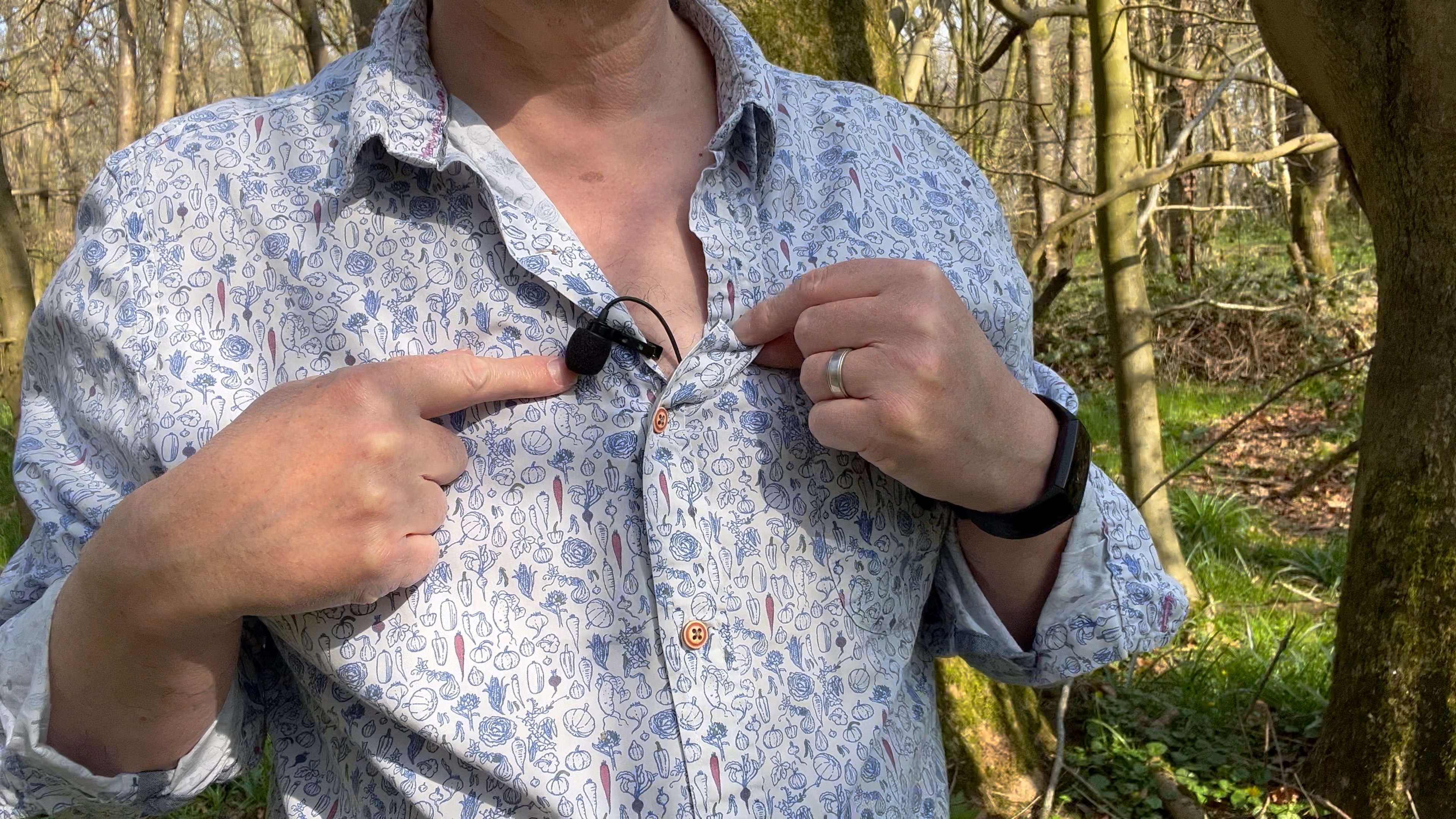
The best camera deals, reviews, product advice, and unmissable photography news, direct to your inbox!
You are now subscribed
Your newsletter sign-up was successful
With the best lavalier microphone (also known as a lav mic or lapel mic or tieclip mic), you can significantly improve the audio quality in your videos – often without spending very much at all! Clipping discreetly onto clothing, lavalier mics can plug straight into a camera, or transmit wirelessly.
I've tested a huge number of lav mics for DCW, and have selected the most impressive of the bunch for this guide. There's a lot of variance in terms of quality, functionality and price, so I've included a mix of budget, mid-range and premium options. All these mics have been used in real-world situations (many by yours truly) to assess their audio quality and ease of use.
You can scroll to the bottom of this guide for more on our criteria and testing procedure. Or, if you're looking for a broader set of options, check out our overall guide to the best wireless microphones, which includes other types of mic as well as lav mics.

George has been freelancing as a photo fixing and creative tutorial writer since 2002. He also produces regular and exclusive Photoshop CC tutorials for his YouTube channel – where he has mastered the art of great sound recording in a range of situations.
The Quick List
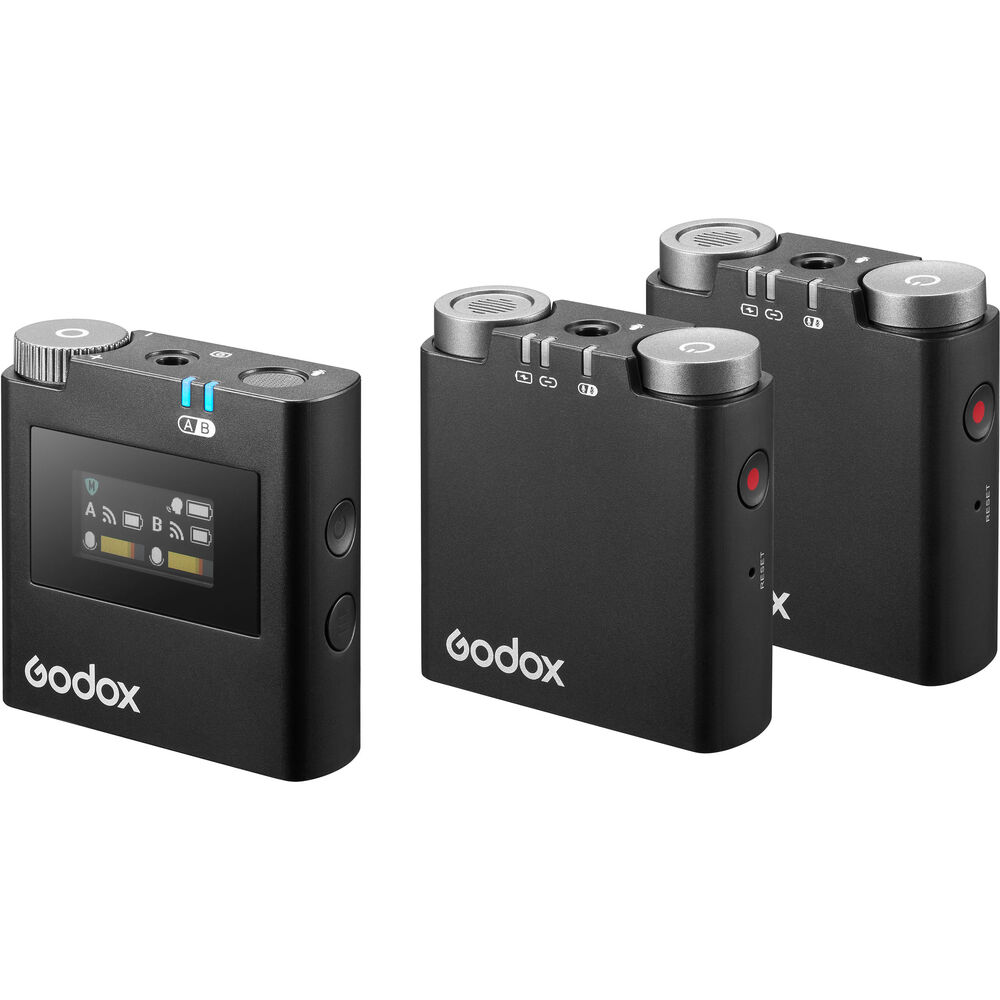
So if you want a reliable lav mic that lets you broadcast wind-free audio from a distance, then the Virso M2 will do the trick!
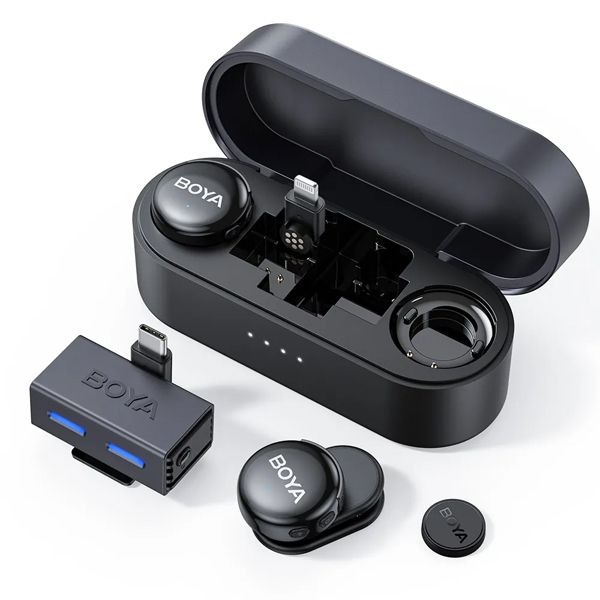
An entry-level mic kit that delivers solid audio quality , the Boya Boyalink 3 is ideal for content creators on a budget – though it lacks the safety track of more expensive pro mics.
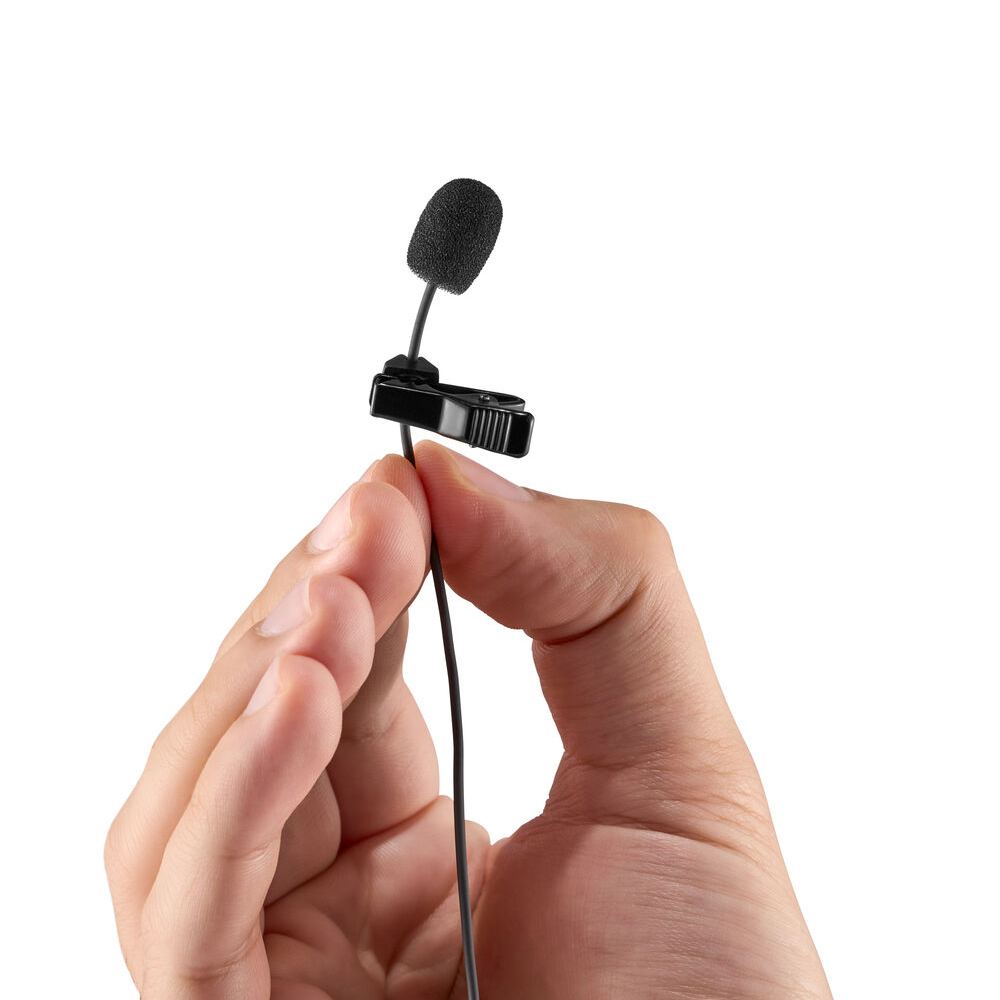
Get this if you need a discreet lavalier mic for talking head interviews without the much bigger expense of a wireless lav set. It's wired with limited cable length, but does the job well.
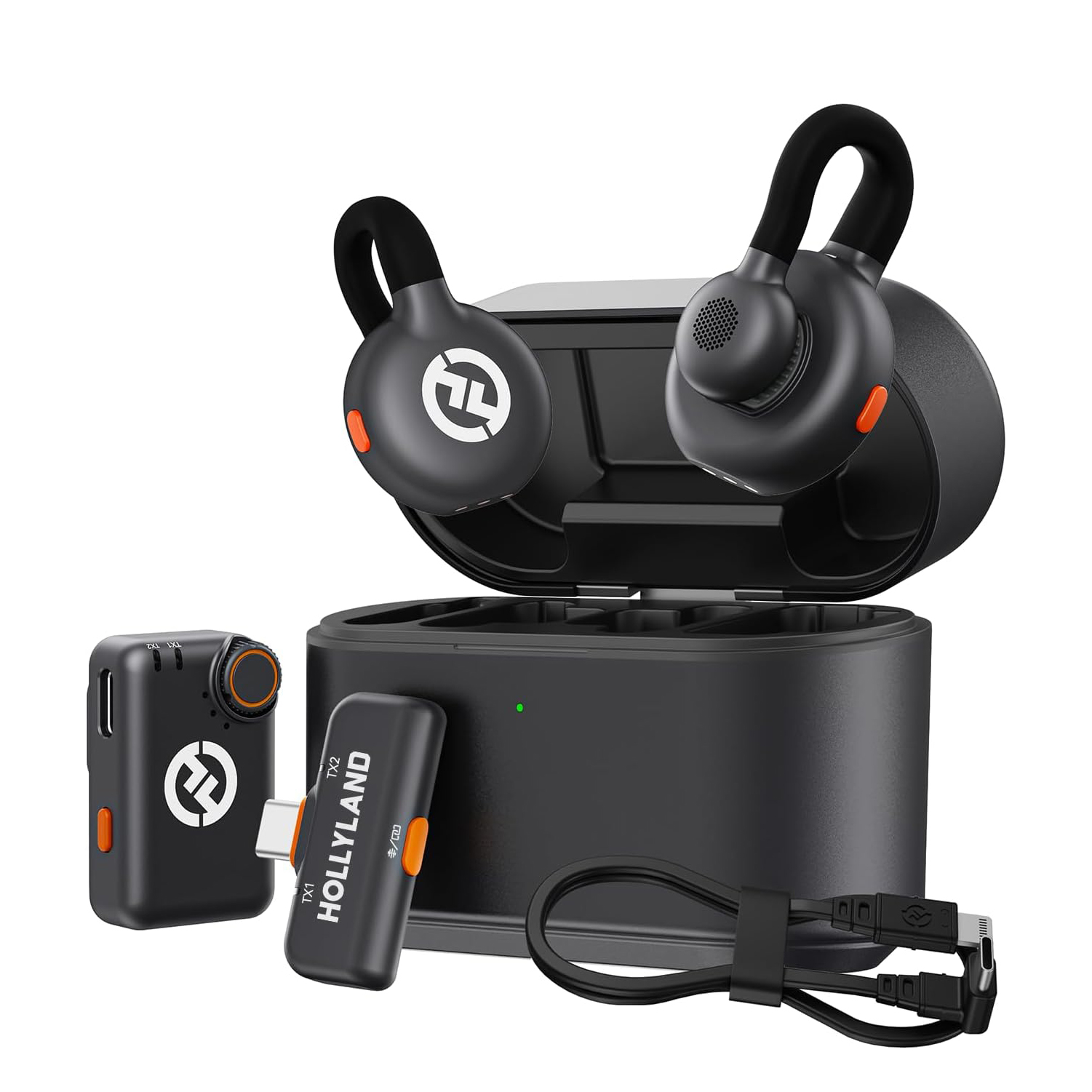
The Hollyland Lark M2S is an ultra-discreet lav mic that uses a magnet-free design for quick setup, and also boasts superior noise reduction. It also has a large transmission range of 300m.
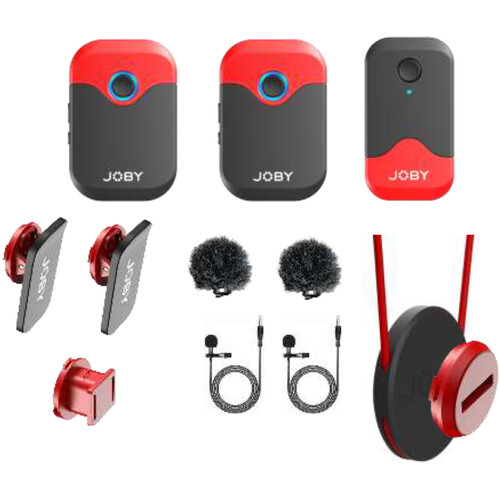
A decent entry level wireless lav mic that will improve your audio and let you walk and talk untethered to your camera.
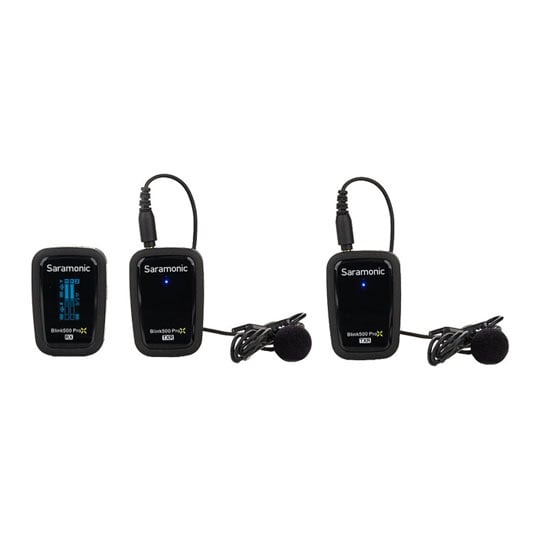
The Saramonic Blink500 ProX B2R’s sound quality is excellent, with two transmitters that can easily be monitored and controlled via the receiver.
See more
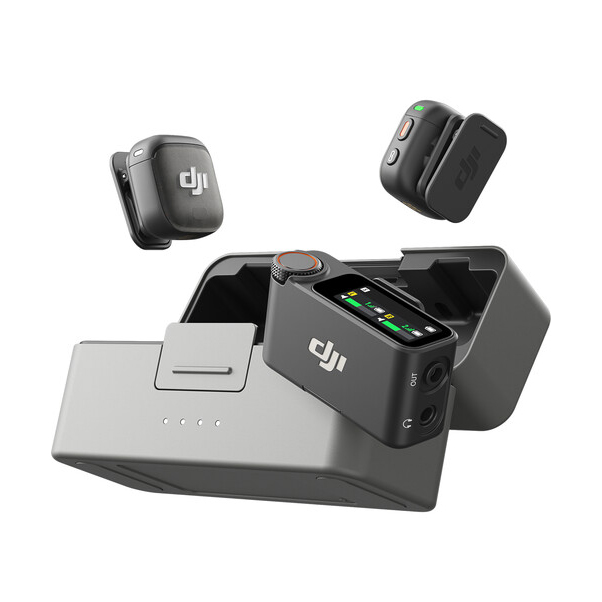
The DJI Mic 3 is probably overkill for causal vloggers, but will appeal to pros who need to be certain that the sound they’ve recorded will match the quality of their video footage.
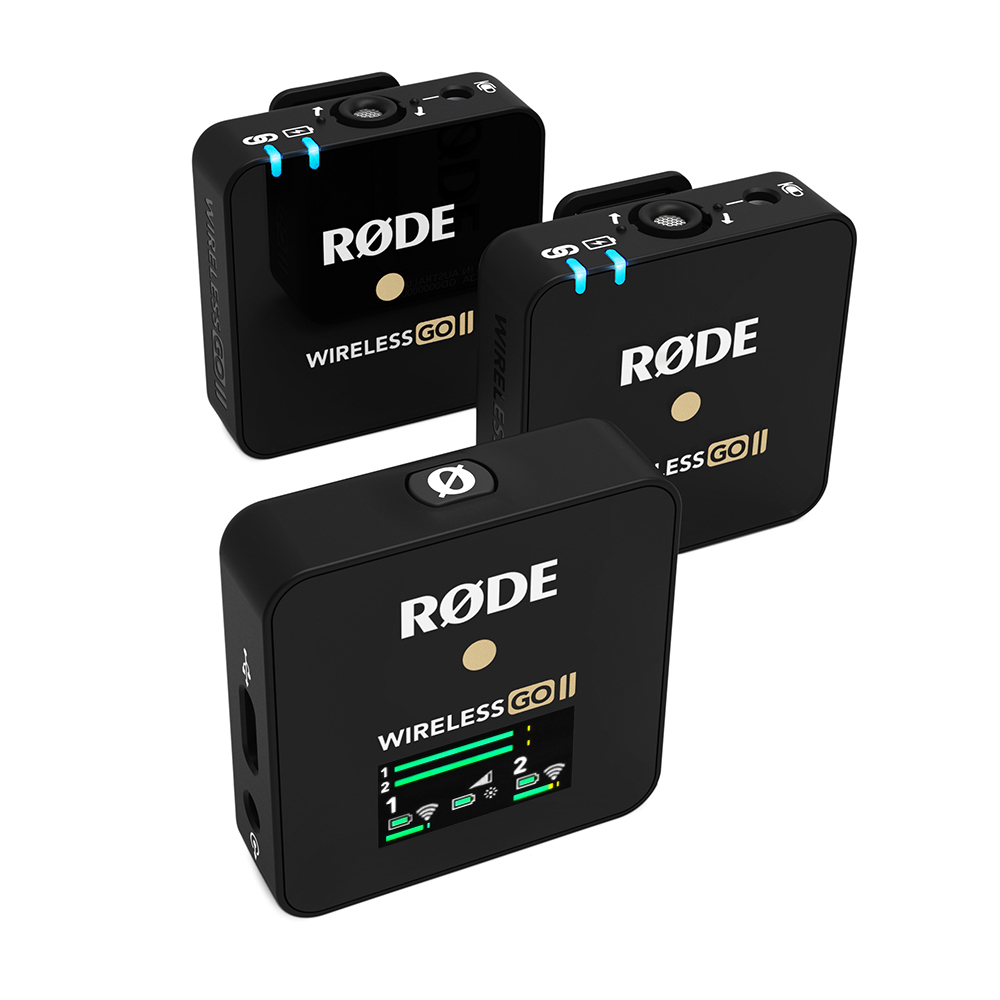
With its impressive audio quality, two-transmitter kit and built-in safety track, the Rode Wireless GO II is an excellent choice for weddings. It's compact too, and offers multiple connectivity options including USB-C and TRS.
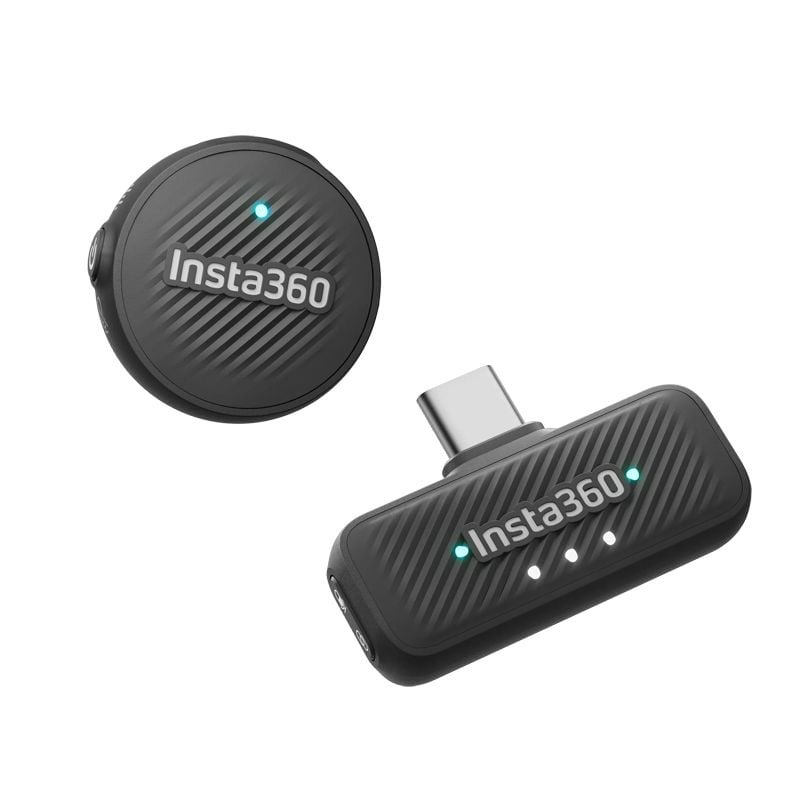
This little mic from Insta360 is one of the more discreet on the market, and its sound quality impressed in our review. Just be aware that connectivity options are limited – while there's USB-C, there's no Lightning or 3.5mm.
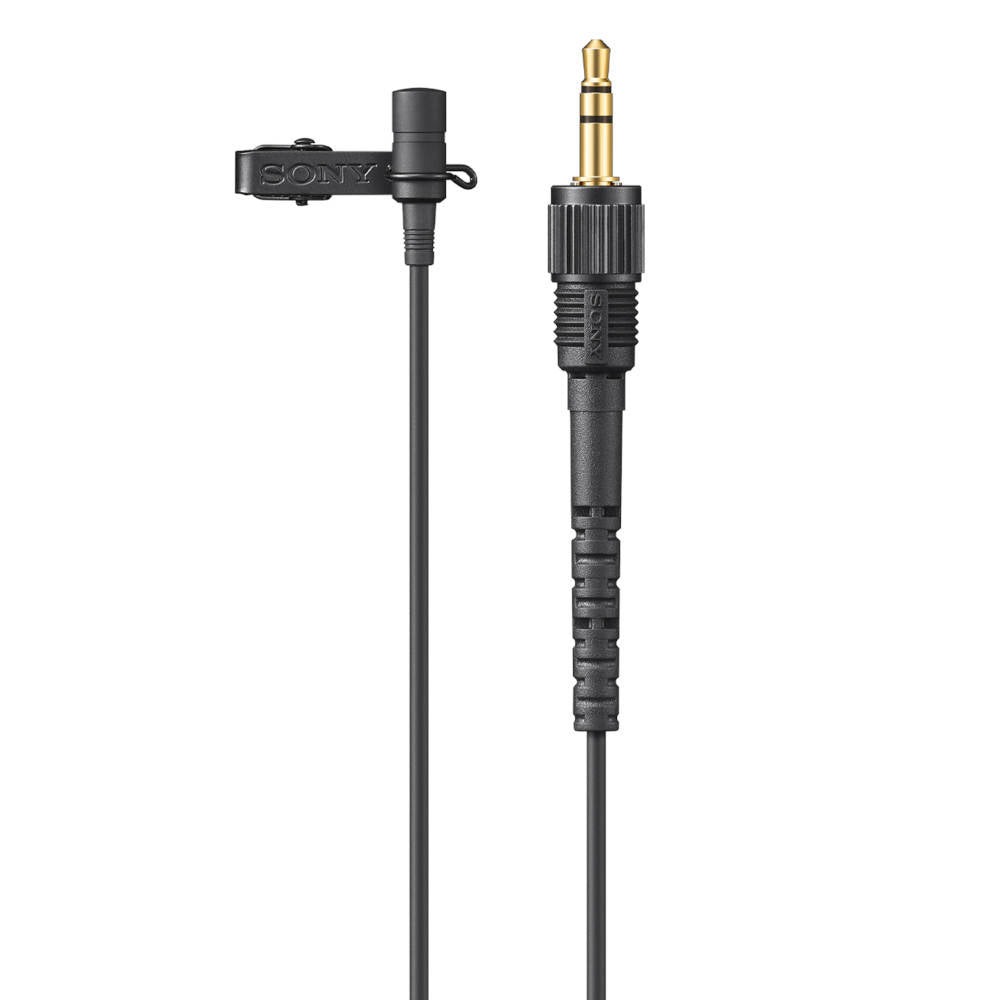
While it's on the pricier end of a crowded market, the Sony ECM-L1 offers superb audio quality and a simple and effective design. It's broadly compatible with different transmitters, but can also plug straight in.
Best lavalier microphones: the full guide
Why you can trust Digital Camera World
Best wireless mic kit for long distance
Specifications
Reasons to buy
Reasons to avoid
The Godox Virso M2 kit consists of two transmitters (with built-in mics) and a receiver that you can attach to a camera or smartphone via supplied cables. If you don’t need to record two people chatting then the M1 kit is cheaper with its single transmitter.
Wireless mics run the risk of the signal dropping out when the transmitter loses line of sight with the receiver (such as when you turn your back to the camera). When I tested the Virso M2 there was no signal drop out - even when I stood behind a thick brick wall at a distance. The transmitter also has a micro SD card slot so you can record your voice directly to a card and then later use the .wav file to replace and drop out in the edit.
Wind noise can be a problem with most mics so the transmitters can be equipped with an easy-to-attach windshield. The transmitter can also apply software noise reduction to reduce the bass rumble of wind. The Virso M2 kit also ships with a cabled lav mic that you can plug into a receiver and then attach the receiver to your belt. This enables you to talk to camera with a more discreet-looking mic. The supplied cabled lav mic’s foam windshield is also more discreet than the larger furry ‘dead cat’ that pops onto the transmitter.
Read our full Godox Virso M2 review
Best budget wireless lavalier mic
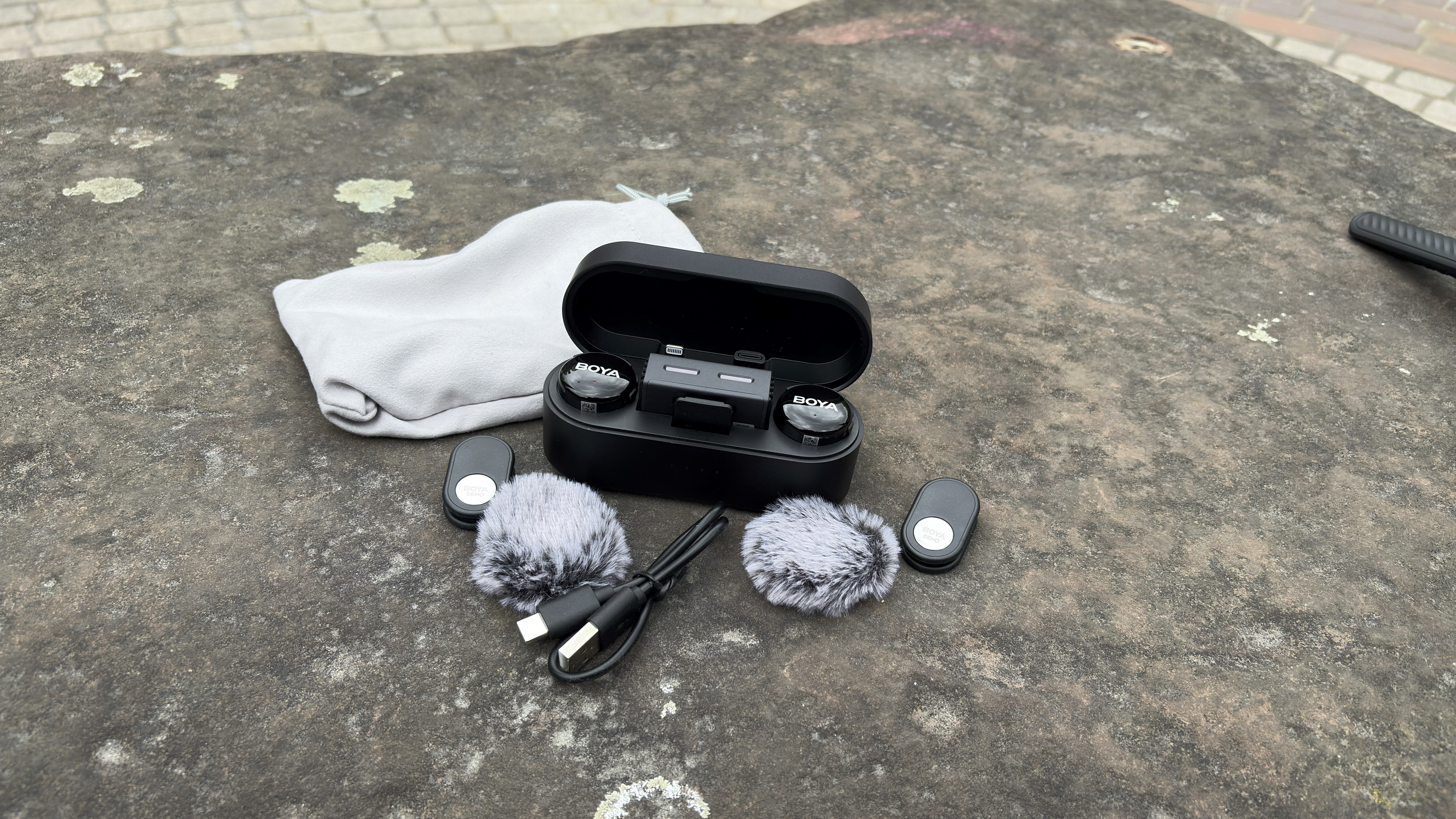
Specifications
Reasons to buy
Reasons to avoid
If you're looking to improve your audio on a budget, the Boya Boyalink 3 is an inexpensive entry-level option that gets the job done. Its 48KHz/24-bit audio quality is high-fidelity and sounds excellent – if you've been using built-in mics on a smartphone or camera, you will immediately notice the difference. It also has an auto-gain feature that means you don't have to worry about setting sound levels.
The slim, circular mic itself can clip on unobtrusively, and as is fairly standard for wireless mics, it comes in a kit that includes a two mics and receivers, a charging case, and a windshield. You also get a USB-C adapter plug to work with smartphones, as well as a Lightning connector for older iPhones, and a TRS connector to hook it up to a mirrorless or compact camera.
The Boyalink 3 is great for social media content creators. However, there are a few drawbacks that mean it's probably not the best choice for budding pros looking to film weddings or events. I experienced some signal drop-out when line-of-sight was lost between transmitter and receiver, and given that the mic has no on-board recording, this could be catastrophic if you're shooting in a situation where you can't ask for a retake.
Read our full Boya Boyalink 3 review
Best wired mic for interviews
Specifications
Reasons to buy
Reasons to avoid
Unlike the rest of the kits in this guide, the JOBY Wavo Lav PRO doesn’t ship with wireless transmitters or receivers. It’s simply a traditional Lavalier mic that clips onto the lapel of your interviewee. It is then hard-wired via its cable into your camera via a 3.5mm jack plug. As the cable is only 2.5 meters long and is tethered to our subject, this restricts you from recording a classic ‘talking head’ interview that shows the subject from head to waist.
So why is the Wavo Lav PRO in this guide? Well for starters, although many of the wireless lav kits featured in this guide ship with additional cabled lav mics they all feature larger capsules that are more noticeable onscreen, especially when they are sporting a bulbous foam windshield. The Wavo Lav PRO’s capsule measures a discreet 5mm in diameter so it is more easy to conceal when clipped on your subject’s clothing. Its optional windshield is very small too. Wireless mic kits are much more expensive than plug-and-play lavalier mics such as the Wavo Lav PRO because they can be plugged straight into your camera without ending a wireless transmitter.
If you do want to use this discreetly sized lav mic from a distance you can plug it into the transmitter of a wireless kit such as the JOBY Wavo AIR. The Wavo AIR supplies its own lavalier mics but they are more chunky (and noticeable) than the smaller-sized Wavo Lav PRO (though the difference in sound quality is negligible.)
Read our full JOBY Wavo Lav PRO review
Most discreet wireless lav mic kit
Specifications
Reasons to buy
Reasons to avoid
A clever device packed into tiny proportions, the Hollyland Lark M2S is discreet even by lav mic standards. It doesn't use magnets – instead, the tiny omnidirectional microphone sits outwards on a short curved stalk that hooks into a subject's clothing and faces outwards, with the larger disc-shaped transmitter hides behind a shirt or jacket. It's a smart solution, and also means that the Lark M2S is much easier to attach and detach quickly than its rivals – perfect for those times when you need to get rolling quickly.
Audio quality is excellent, and holds up well over distance. Hollyland promises this mic can manage transmission distances of up to 300m (which realistically is more than you're ever going to need) and our testing did bear this out. We did encounter some signal drop-out when we interfered with line of sight between transmitter and receiver – and there's no on-board recording functionality to rescue you if this happens – but again, it's unlikely you'll be using a lav mic at the kind of distances where this would be a problem.
Also impressive is the built-in noise reduction feature, which we tested by attempting to record near a noisy fountain. We were able to make the unwanted white noise completely vanish, and there was none of the flat-sounding warble that can affect mics that use noise reduction. It sounded great. This lightweight, well-featured kit is brilliant for anyone who wants an ultra-discreet and easy-to-use mic that delivers brilliant quality.
Read our full Hollyland Lark M2S review
Best entry-level wireless mic kit
Specifications
Reasons to buy
Reasons to avoid
The JOBY Wavo Air is cheaper than many of the lav mics featured in this guide and this is reflected in its chunky yet lightweight plastic transmitters and relatively short range transmission range of 50 meters (compared to the more expensive DJI Mic 2’s 250-meter range). However, the Joby Wavo AIR’s wireless transmitters still enable you to capture better quality sound from a distance than you could get using your camera or smartphone’s built-in mic. As with the Lark Max Duo kit the Joby Wavo Air also ships with a cabled Lavalier mic so you can clip this (via crocodile clip) to your shirt and hide the bulky transmitter by attaching it to your belt.
If you need to rig up a mic in a hurry then Wavo Air supplies a magnetic pendant for you to wear under your shirt. Simply hold the transmitter in close proximity to the pendant and it will snap onto it, fixing the transmitter to your shirt in an instant. This is a much quicker process than clipping on a cabled lav mic and passing its cable down the inside of your shirt.
Both the transmitter's built-in mics and the supplied Lavalier cable mics have windshields, though the transmitter mics suffered less from wind noise than the cabled Lavalier mic. We found that if the transmitter lost sight of the receiver then the sound would drop out at 24 meters, but remained loud and clear if you faced the camera up to 50 meters. As this is a budget mic set it lacks the handy onboard recording features in higher spec (and more expensive) mics such as the Lark Max (but you get what you pay for).
Read our full JOBY Wavo AIR review
Best wireless mic for recording two people
Specifications
Reasons to buy
Reasons to avoid
With two transmitters and a receiver, all housed in a sleek charging case, the Saramonic Blink500 ProX B2R looks much like many other wireless lav mic kits. The receiver sports a larger OLED screen that allows you to monitor the sound quality and battery levels of the two receivers, making it a tremendous option for recording two people simultaneously. You can keep an eye easily to see if any noise is interfering with one or both of the transmitters, and in the case of drop-out, you can easily switch to recording to the built-in storage to ensure you have a clean copy.
For testing, we took the Saramonic Blink500 ProX B2R out to the woods with an iPhone rig. Sound came in loud and clear even when we put more than 50m of distance between transmitter and receiver. There was a little latency (lag between video and audio) which required correcting in post – not a particularly big issue, but worth being aware of.
Producing rich, full-bodied and artifact-free sound, the Saramonic Blink500 ProX B2R is an auspicious choice for the professional who has no room for error and needs to get things right first time.
Read our full Saramonic Blink500 ProX B2R review
Best mic for professional video makers
Specifications
Reasons to buy
Reasons to avoid
Spend some time watching YouTubers and you'll see a DJI Mic before too long. These wireless mic kits from the Chinese manufacturer have proved hugely popular, and the third iteration is definitely the best yet, earning the full five stars in our review. With a built-in battery and beefy charging case, these mics are designed to go the distance for a full, hard day's recording.
New features for the Mic 3 include 32GB of built-in storage, as well as adaptive gain controls to prevent clipping and audio spikes, even when you're recording in loud environments. Recording in lossless 48kHz 24-bit directly to the receiver , the DJI Mic 3 produces excellent fidelity in basically any environment, and also records an on-board safety track in case of signal drop-out.
Feeling noticeably more robust and premium than many of the cheaper mics on our list, the DJI Mic 3 can attach to clothing via a clip or a magnet (there's no longer anywhere on the TX unit for a plug-in lavalier mic, DJI having presumably decided it's no longer necessary). In our testing, sound quality was of course excellent – at this point, anything otherwise would have been a huge surprise – and the mic performed as advertised across the rated signal range.
It's certainly not the cheapest option, and is probably overkill if you're an at-home vlogger or casual social media creator. But for those who need a mic with near-flawless audio, rugged construction and smooth operation, the DJI Mic 3 well and truly fulfils the brief.
Read our full DJI Mic 3 review
Best for weddings
Specifications
Reasons to buy
Reasons to avoid
The Rode Wireless Go was the first mass-market wireless microphone system - offering a small clip-type transmitter with a built-in mic. The Wireless Go II standard kit goes one better by providing you with two transmitters - perfect for recording interviews, or the exchange of the vows at a wedding.
We found it very straightforward to use the connected units which respond immediately so that as soon as the cable is unplugged, they’re ready for action. We loved that you get the choice to record audio from each of the transmitters to a separate channel, or to use a ‘Merged’ mode so that the dual audio inputs are combined onto a single output. There's a special safety mode too, that allows you to record the audio at two different levels - as insurance against unexpected big jumps in volume.
Read our full Rode Wireless Go II review
Best tiny wireless lav mic
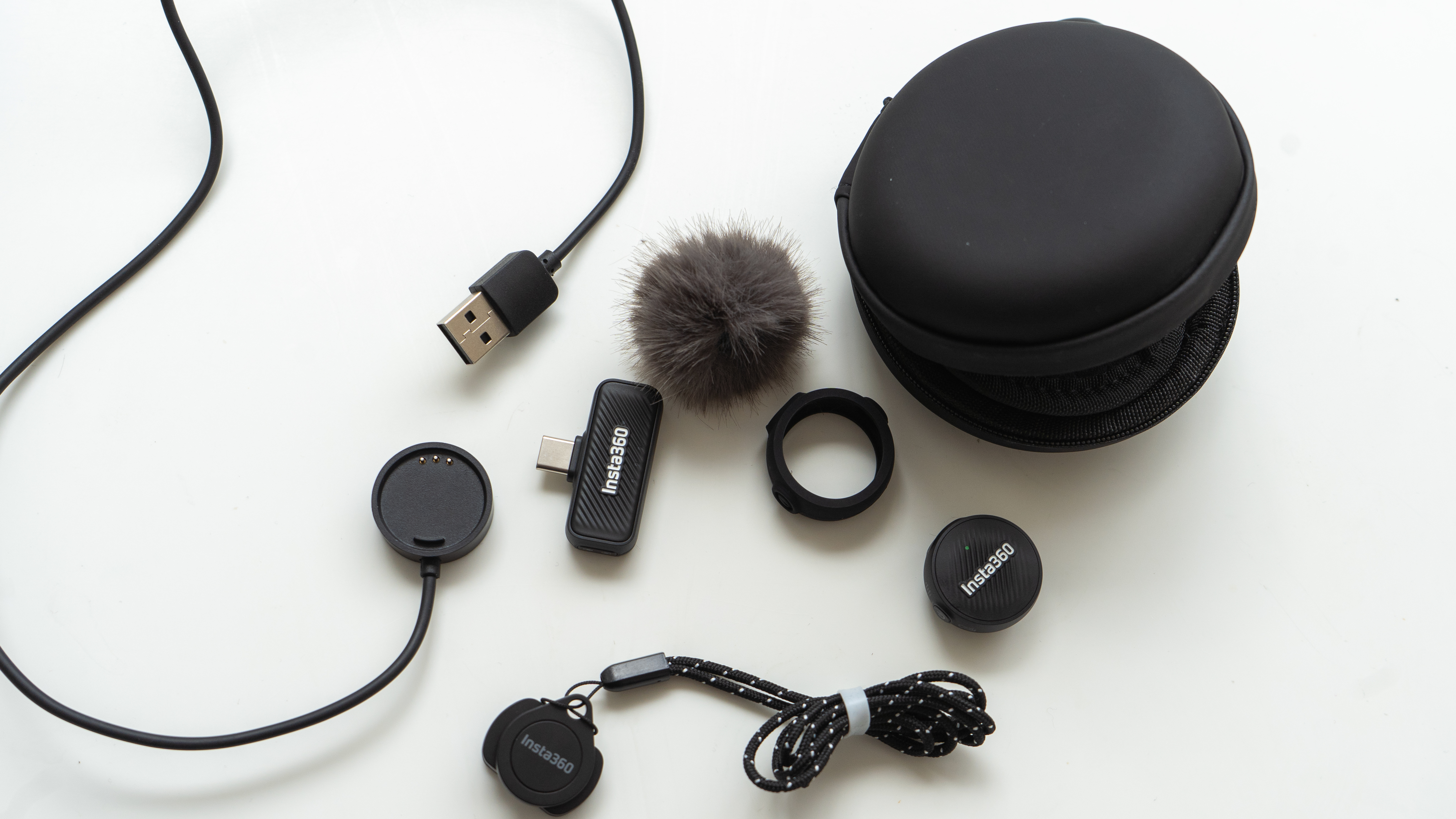
Specifications
Reasons to buy
Reasons to avoid
It was only a matter of time before Insta360 – maker of 360-degree cameras and action cameras – muscled its way into the wireless mic game. Though its first foray, the Insta360 Mic Air, is so tiny you could hardly accuse it of muscling anywhere. Barely the size of a coin, the little 24-bit wireless microphone is clearly designed first and foremost to connect with Insta360's own cameras like the X5 and the Ace Pro 2. If you've already got one of those and you're looking for a mic, it's a no-brainer.
The inclusion of a USB-C connector means it can also connect to smartphones – however, there's no Lightning connection for older iPhones, nor an option for standard 3.5mm connection. So, it's a little limited in that respect, and will only be suitable for a specific slice of users.
In our testing, the Insta360 Mic Air was a consistently solid performer. It handled a range of sound situations very well, delivering clear vocal recordings indoors and outdoors, and the connection process with a smartphone was painless and easy. Its noise cancellation feature performed well when our reviewer Adam put it through the gauntlet of recording near a busy road. It's so small and light that it's ideal for anyone who wants a near-invisible lav mic – as long as its limited connectivity options will play with your setup.
Read our full Insta360 Mic Air review
Best premium wireless lav mic
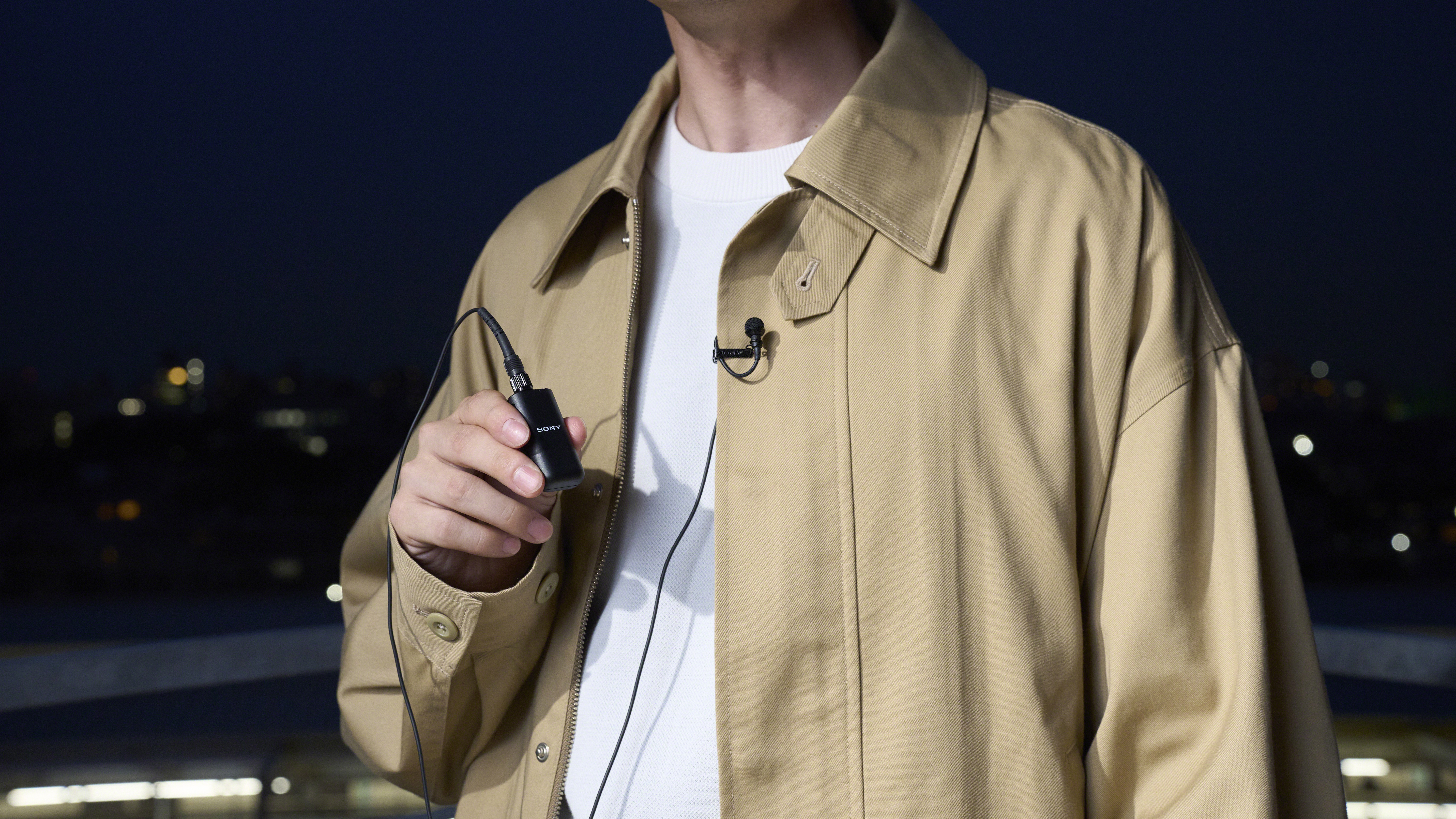
Specifications
Reasons to buy
Reasons to avoid
Made with Sony's customary attention to quality, the ECM-L1 is a plug-and-play lav mic that can easily slot into an existing system. You can plug it directly into your camera, or use with pretty much any wireless transmitter from another system, and it'll offer you excellent audio quality thanks to its ECM-77 series capsule, which is widely used in the pro recording world and is certainly a cut above the capsules you'll see in many cheaper lav mics.
Essentially, this is a mic for anyone who wants to use a lav mic as their principal source of audio recording, and doesn't mind paying for the privilege. We tested the Sony ECM-L1 alongside a RODE Lavalier II – which can be picked up for about half the price. The Sony unsurprisingly was better, with cleaner, clearer and richer sound in the lower frequencies – but it wasn't that much better. Pros who want the utmost in audio quality will certainly appreciate the difference, but most content creators will probably be just fine with the cheaper option – and there are many cheaper options out there.
Read our full Sony ECM-L1 review for more.
How to choose the best wireless mic kits
Any of the lavalier mic kits in this buying guide will enable you to improve the audio production values of your video programs, but it’s worth considering your specific needs as a filmmaker.
If you want to talk to camera without the constraints of a hard-wired lavalier mic then consider the cheaper option of buying a version that contains one transmitter mic and a receiver. Our buying guide features the more expensive duo version of each kit which enables you to clip a mic onto yourself and another onto your interviewee so that you both sound loud and clear as you walk and talk wirelessly.
You should also consider if you want a simple ‘plug and play’ kit that lets you start recording straight away (such as the JOBY Wavo Air), or whether you want the option of viewing and manually adjusting sound levels on the receiver with a kit such as the Saramonic Blink500 ProX B2R.
On the whole, the more you spend the more features you’ll get - such as onboard recording for example. But even the cheapest kit in our guide should sound better than your camera’s built-in mic, especially once you’ve moved a few feet away from your recording device.
How do I connect a receiver to a smartphone?
Most of the wireless lav mics that feature in this review ship with a 3.5mm TRS jack audio cable that connects the receiver to the 3.5mm socket on a DSLR or mirrorless camera. They also provide a 3.5mm TRS to TRRS cable for smartphones that have a jack input.
To connect this cable to a smartphone that doesn’t have a 3.5mm jack socket (such as an iPhone) you’ll need to buy an add adaptor cable. A 3.5mm to USB-C adaptor will let you connect the receiver to an Android smartphone (plus the iPhone 15 Pro line). If you have an older iPhone then you can buy a 3.5mm to Lightning connector. The DJI Mic 2 ships with connectors for both USB-C and Lightning so you can plug its receiver into your smartphone or iPhone without the need for a third-party adaptor. Adaptors are relatively cheap.
When you plug the adaptor into an iPhone you’ll be asked if you’re connecting headphones or another device to the cable. Tap ‘other device’ or your iPhone might not recognize (and therefore not listen to) the mic.
What does 32-bit float mean?
The DJI Mic 2’s transmitter uses a 32-bit float to capture its onboard recordings. This is an audio equivalent of shooting a photo in Camera RAW format. A RAW file contains much more information about a file’s colors and tons, enabling you to restore detail to clipped (over-exposed) highlights and restore detail hidden in under-exposed shadows. The 32-bit float recorded file contains more information too, enabling you to boost quiet sound levels without adding artifacts such as hiss or capturing a sound voice without it becoming distorted.
How we test the best wireless mics
We test microphones in a number of challenging situations to check how they perform against different background noises. We so far have tested the microphones in this list in a moving train, near a major busy road, and by some high-pitched noisy children. We assess how cleanly the Lavaier microphones can pick up our voices amongst all this hubbub. If you want to see for yourself how the microphones perform, our full reviews have supporting test videos so you can hear the sound quality for yourself.
The best camera deals, reviews, product advice, and unmissable photography news, direct to your inbox!
George has been freelancing as a photo fixing and creative tutorial writer since 2002, working for award winning titles such as Digital Camera, PhotoPlus, N-Photo and Practical Photoshop. He's expert in communicating the ins and outs of Photoshop and Lightroom, as well as producing video production tutorials on Final Cut Pro and iMovie for magazines such as iCreate and Mac Format. He also produces regular and exclusive Photoshop CC tutorials for his YouTube channel.
